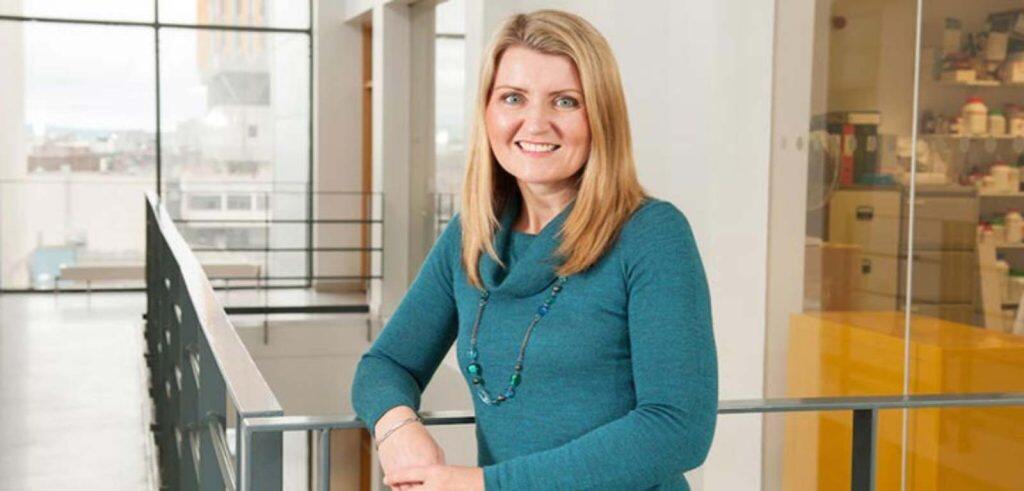The innovative technology platform aims to deliver inhaled gene therapy directly to the lung to treat the underlying cause of cystic fibrosis (CF).


Emily’s Entourage (EE), an innovative foundation that accelerates research for new treatments and a cure for the final 10% of people with cystic fibrosis (CF), including those with nonsense mutations, has announced it has awarded $220,000 in funding to Professor Lorraine Martin from the School of Pharmacy at Queen’s University Belfast.
The grant will support the development of a novel regenerative gene therapy platform technology that may provide a new treatment approach for people with CF, including individuals with nonsense mutations.
In addition to funding from EE, Cystic Fibrosis Trust, the UK’s leading charity supporting people with cystic fibrosis, has provided a grant from their Venture and Innovation Award fund to support Professor Martin’s pioneering research.
With this grant, Professor Martin, in collaboration with the biotechnology company OmniSpirant Therapeutics, aims to advance the development of an inhaled gene therapy platform for CF.
This technology is based on biological, non-viral nanoparticles called extracellular vesicles (EVs) that are produced from stem cells. Nonsense mutations of CF result in truncated and nonfunctional cystic fibrosis transmembrane conductance regulator (CFTR) protein. The gene therapy is engineered to transport and deliver a genetic, protein-making template for the full length CFTR protein, thus addressing CF at the genetic level.
This funding from EE and the Trust will allow Professor Martin’s team at Queen’s to conduct additional preclinical studies including functional gene transfer studies and safety studies – an important part of advancing the technology toward future clinical trials.
Speaking on the announcement, Professor Martin said: “I am really delighted to receive this funding from Emily’s Entourage, and the additional support provided by Cystic Fibrosis Trust, as it will allow us to take the next steps to advance this novel technology.
“Using this funding, we will conduct further research with the goal of unlocking the extraordinary potential of nucleic acid-based therapeutics for nonsense mutations that cannot be treated with the therapeutics currently approved.”
Dr Lucy Allen, Director of Research and Healthcare Data, at Cystic Fibrosis Trust, said: “We are thrilled to partner with Emily’s Entourage for the first time through this collaborative grant. Developing treatment options for people with CF who cannot take CFTR modulators has recently been identified as the top priority for research by people with cystic fibrosis. It is exciting to jointly support this important work as this technology represents a way to reach people who do not benefit from currently available CF therapies.”
These two funding sources will significantly contribute to the advancement of biological non-viral therapies and will provide critical support of the development of gene therapy technologies for nonsense mutations of CF.
Professor Martin and her team at Queen’s will continue to work collaboratively with OmniSpirant Therapeutics to advance the development of the gene therapy platform.
Gerry McCauley, Chief Executive Officer, OmniSpirant, said: “OmniSpirant Limited is developing OS001, a first-in-class regenerative gene therapy for CF, and we have demonstrated promising results in preclinical disease models.
“We are excited to progress the development of OS001 with EE funding in partnership with Queen’s University Belfast. We believe OS001 has the potential to restore leading levels of CFTR activity regardless of CF genotype. We are incredibly grateful for the support and scientific expertise of Emily’s Entourage and the Trust, which will allow OmniSpirant to advance this potentially game-changing therapeutic program in collaboration with Professor Martin.”


































